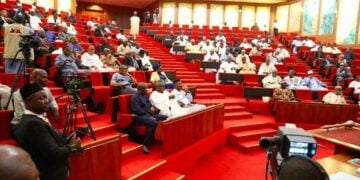Nigeria’s bold attempt to overhaul its tax system has entered a critical phase, following the introduction of a new Capital Gains Tax (CGT) framework that has sparked intense debate among investors and market participants. While some analysts have warned that the reform could trigger short-term shocks in the capital market, the Presidential Fiscal Policy and Tax Reforms Committee (PFPTC) insists that the policy is a major step toward restoring fairness, protecting investors, and aligning Nigeria’s tax regime with global standards.
The reform, expected to take effect from January 2026, replaces the decades-old flat 10 per cent CGT rate with a progressive rate system ranging from 0 to 30 per cent, depending on income levels.
This shift, according to the committee chairman, Taiwo Oyedele, is part of a broader vision to simplify Nigeria’s tax structure, expand its economic base, and make investment more predictable and rewarding for long-term participants.
Speaking in response to reports of panic selling and a sharp ₦4.64 trillion loss in market value yesterday, Oyedele clarified that much of the anxiety surrounding the new tax stemmed from misinterpretations and misinformation.
“While detailed implementation guidelines will be provided through official regulations, it is important to clarify the critical issues at this stage,” he said. “The new CGT framework represents a major improvement over the existing law. It makes investment in the Nigerian capital market more attractive, reduces investment risk, and ensures fair treatment of legitimate costs incurred by investors. In essence, the reform promotes equity and confidence in the market — not the reverse.”
His remarks came amid widespread concern that the 30 per cent top tax rate would erode profitability and dampen investor appetite. Oyedele, however, explained that only large corporate investors would fall under the top rate, which is itself expected to be reduced to 25 per cent under the ongoing corporate tax harmonisation plan.
In practical terms, small and institutional investors — including Pension Fund Administrators (PFAs), Real Estate Investment Trusts (REITs), and non-profit organisations — will remain exempt from the new CGT regime. Similarly, retail investors whose total annual share disposals do not exceed ₦150 million and whose gains remain below ₦10 million will pay no CGT at all.
The reformed framework introduces several pro-investor provisions. For the first time, taxpayers will be able to deduct capital losses and investment-related costs such as brokerage fees, margin interest, and regulatory charges when calculating their tax liability. This means investors will not be taxed on losses or unrealised gains — a significant improvement over the previous regime.
To further encourage reinvestment, the law grants full exemption for proceeds reinvested into Nigerian companies within 12 months. This incentive aims to keep liquidity within the domestic market, supporting local firms and promoting capital retention.
Additionally, Oyedele clarified that for investments made before 2026, the cost base would be “reset” to the higher of the actual acquisition cost or the market value as at 31 December 2025, ensuring that old gains are not unfairly taxed under the new law.
The Capital Gains Tax reform is not an isolated policy. It is part of a comprehensive fiscal reset being championed by President Bola Ahmed Tinubu’s administration to modernise Nigeria’s tax system, stimulate growth, and improve compliance without overburdening businesses or individuals.





